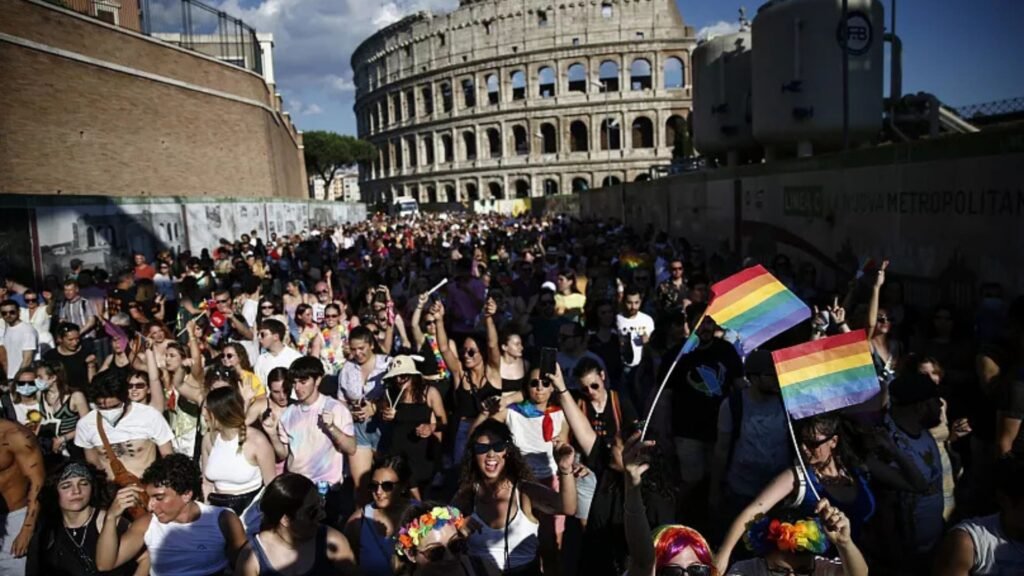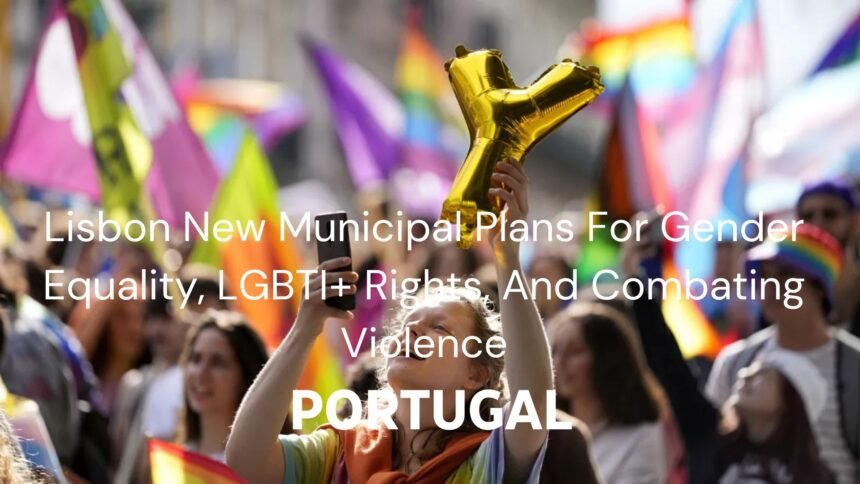The Lisbon Municipal Assembly has approved three new plans to promote gender equality which support LGBTI+ communities and prevent violence against women. These plans are valid until 2026 and aim to address important social issues and protect vulnerable groups. The city hopes these plans will bring lasting change to Lisbon communities and inspire similar efforts across the country.
Read More About: Portugal Is One Of Most Moderate Countries In Europe, Rui Armindo Freitas Says
Lisbon New Municipal Plans For Gender Equality

The plans were created with input from many people and organizations. This inclusive approach brought together different perspectives and expertise to ensure the plans address real needs. The Councillor for Human and Social Rights Sofia Athayde said this teamwork made the project stronger.
Sofia Athayde said:
Despite including important points of innovation, all the plans continue in line with previous versions
Community participation played a vital role in highlighting challenges and proposing practical solutions.
Key Objectives
The plans aim to protect victims of domestic violence and gender based violence while promoting inclusivity and equality. They include:
- The II Municipal Plan for Gender Equality
- The II Municipal LGBTI+ Plan
- The III Municipal Plan for the Prevention and Combat of Violence Against Women.
These plans build on previous efforts while adding new measures to tackle evolving challenges. The focus is on strengthening prevention strategies and offering better support to victims.
Counciler said:
The plans are the result of a joint construction process, involving several members and entities , with different sensibilities, which resulted in a truly enriched and balanced project
The plans were supposed to start in 2024 but due to bureaucratic and logistical challenges it faced delays. They were approved in early 2025 and are now ready for implementation. This shows the city commitment to advancing human rights despite the setbacks and addressing urgent social issues. The delay underlines the importance of better planning and faster decision-making in the future.
The II Municipal Plan For Gender Equality
This plan aims to promote equality between men and women in education and work. The equality also include time management and citizenship. It has nine goals which include keeping Roma girls in school and reducing dropout rates among boys. Particular focus is placed on motivating males to actively participate in household and caregiving duties and reducing gender disparities in the workplace.
The plan continues the work started in 2020-2021 when 55% of its measures were implemented by 2022. This highlights both progress and the need for ongoing efforts to address gender inequality. New initiatives include awareness campaigns and training programs to foster a culture of equality in schools and workplaces.
The II Municipal LGBTI+ Plan
The LGBTI+ plan aims to stop discrimination based on sexual orientation and gender identity. The first plan from 2020-2021 had a 71% implementation rate despite challenges from the pandemic. The new plan focuses on six areas building on this foundation:
- Participation
- Preventing violence
- Training
- Health
- Education
- Jobs
This plan addresses the needs of LGBTI+ individuals by improving past measures and tackling new challenges. For example, it includes workshops to educate the public about LGBTI+ rights and services to support mental health and well being. The strategy is to promote more acceptance and inclusion in order to build a community where everyone feels appreciated and respected.
The III Municipal Plan For The Prevention And Combat Of Violence Against Women
This is the third plan aimed at reducing violence against women. It follows earlier plans from 2014-2017 and 2019-2021 which reflect Lisbon ongoing commitment to this critical issue. The main goal is to ensure all victims of violence get the help they need through a network of partners which include NGOs and healthcare providers.It also include law enforcement agencies.
The plan also aims to create a city free from violence against women by focusing on prevention. It includes measures to improve support for victims, create services tailored to local needs and offer help in schools and communities. Workshops and training sessions will educate residents and professionals on recognizing and addressing signs of abuse.
Challenges And Criticisms
Opposition parties have raised concerns about the plans. Critics from PS, Livre, PCP, BE and Cidadãos Por Lisboa said the plans lack ambition and rely on outdated data especially about the effects of COVID-19. They also pointed out delays in presenting the plans and the low implementation rate of earlier efforts which raises questions about the city ability to deliver on its promises.
The Iniciativa Liberal (IL) party questioned the plans timeline and note that one third of the period had already passed before approval. These criticisms highlight the need for better planning, clearer timelines and stronger execution to achieve the intended goals.
Recommendations For Implementation
The 6th Permanent Committee on Human and Social Rights suggested creating a timetable for each measure and detailing the costs to improve the plans. These steps can increase accountability and ensure the plans succeed. Regular progress reports and evaluations will help identify any roadblocks and ensure timely adjustments.
The Lisbon Municipal Assembly also approved a motion from the CDS-PP party and urging the national government to increase penalties for domestic violence. The motion included reviewing inheritance laws in domestic violence cases and ensuring aggressors not victims and leave shared homes.
These ideas had mixed support but show a broader effort to fight domestic violence. Such measures if implemented effectively could have a significant impact on protecting victims and deterring abuse.
The new plans are a big step forward for Lisbon in promoting human rights and social justice. They aim to promote gender equality and support LGBTI+ rights. They have planned to stop violence against women. The city wants to create a safer and more inclusive environment for everyone where no one is left behind.






